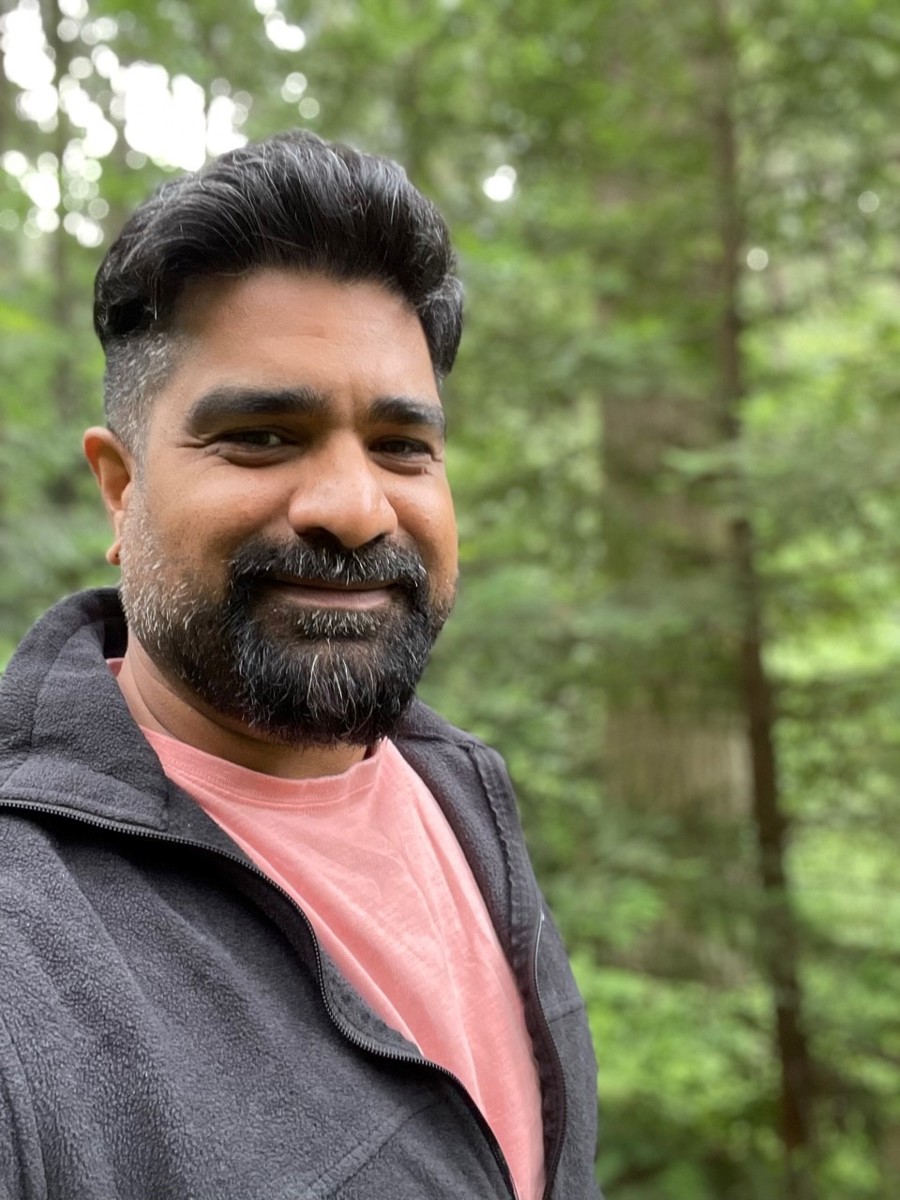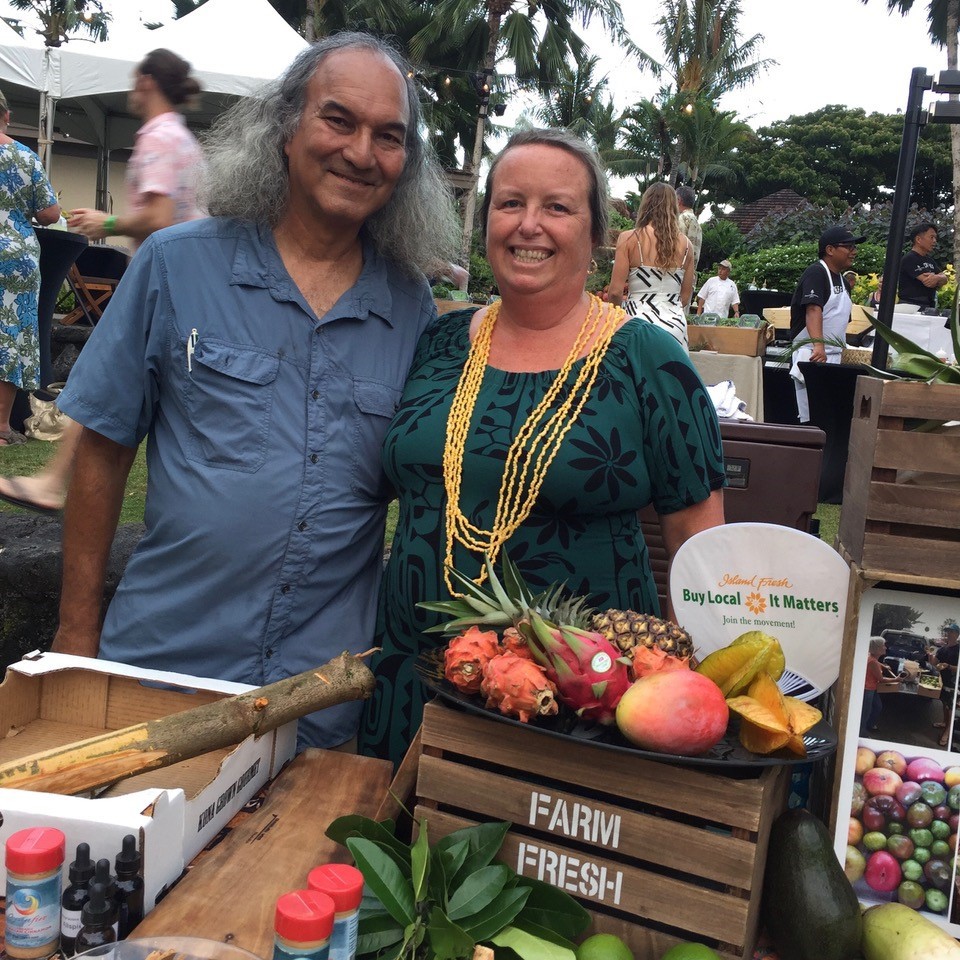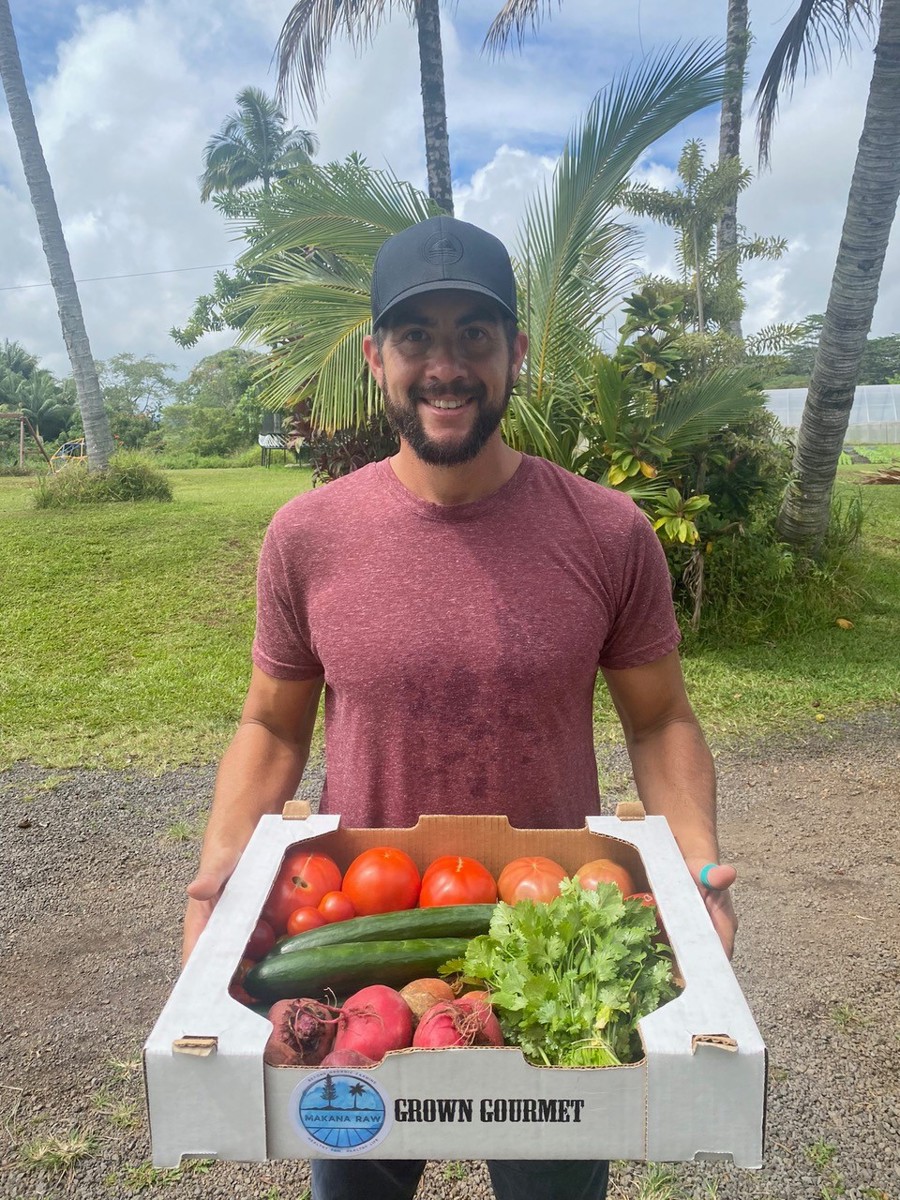Statewide Hui Helps Island Food Hubs Increase the Use of Locally Grown Food Local Farmers, Shoppers, Chefs and Grocers Benefit
Press Release by Fern Gavelek Communications
Statewide Hui Helps Island Food Hubs Increase the Use of Locally Grown Food
Local Farmers, Shoppers, Chefs and Grocers Benefit
September 7, 2023
HAWAIʻI ISLAND—Food hubs across Hawaiʻi Island are making it easy to access locally-grown food. With locations in Kona, Kohala and Hilo, the hubs provide weekly subscription food box programs to local and resort residents. They also act as a middleman for ordering and collecting food from local farmers to deliver to grocers, restaurants and resorts.
These services offer convenience and fresh quality for families and chefs while farmers are ensured timely sales of their produce. The domino effect is both large and small farmers are inspired to grow more food and so thereʻs more of it. The result is less dependence on imported food and more food security on Hawaiʻi Island.
“Food hubs are a more empowering and equitable way of distributing food,” says Dr. Saleh Azizi, director of the statewide Hawai‘i Food Hub Hui (HFHH). “One of the values of food hubs is to make local food more accessible to local communities...many accept SNAP and Double Up Food Bucks.”
Hawaiʻi Island Hui members include Adaptations in Kealakekua, Hawaiʻi ‘Ulu Cooperative in Honalo, the Kohala Food Hub in Hāwi and three hubs in Hilo: OK Farms, Ho‘ōla Farms and the Hawaiʻi Food Basket.
Under the umbrella of the non-profit Hawaiʻi Good Food Alliance, the 14-member hui was established in 2017 and guides food hubs with the mechanics of operation: sustainable business practices, quality control, profitability and grant availability. HFHH also acts as a liaison connecting large wholesale customers, such as schools or grocers, who want to buy local food, but donʻt know how to go about it. The Hui assists hubs with fundraising while advocating for policy and legislative changes.
“With the Hui, food hubs find they arenʻt alone and each learns from the other while all share the mission of of helping farmers ...,” adds Dr. Azizi, who earned his Ph.D. at UH Manoa in Urban and Regional Planning with a focus on community-led policies to strengthen local food systems.
An Aloha State resident since 2006, Azizi shares that “he found a sense of belonging in Hawaiʻi and felt called to purposeful work.” He served as a farmer contributing to O’ahuʻs Kahumanu Organic Farms and then was hired to launch the Kahumana Food Hub. “My experience there informed me,—first as a farmer with those challenges, and then as a food hub manager.”
Dr. Azizi is passionate about using local food, agriculture and food hubs as tools for improving lives. His goal is to create economic opportunities for the well-being of farmers to enable them “to thrive close to home.” He says food hubs help make agriculture a full-time livelihood for farmers, instead of farmers working another job while doing ag part-time. “Because of the demand for local food, more people are doing farming full time.”
While agreeing that “the demand for local food is great,” Dr. Azizi emphasizes “the cultural challenge as a whole is for us to invest as a community in our local food system. “He cites how food hubs, during disasters such as the COVID pandemic and Lahaina fire, are quick to respond to feed the community. “Food hubs connect fresh produce to local people in local communities when other food supplies are cut off.”
A challenge for food hubs is they are still a relatively unknown asset in the community. Many people have never heard of a CSA, which is an acronym for Community Supported Agriculture. Food hubs offer a CSA subcription, which is a commitment to purchase a weekly box of locally produced food. It can be picked up at drop-off locations or delivered, depending on the food hub, and may come with recipes and info on the produce in the box. CSAs encourage customers to try and use local foods, which could be unfamiliar, and in doing so support farmers.
“People are stuck in the mindset thereʻs not enough local food and we are dependent on imports,” shares Azizi. ”This way of thinking applies to both food buyers and local consumers.... they arenʻt aware of the capacity of food hubs.”
According to the HFHH website, statewide food hubs as of 2023 support 1,337 farms serving approximately 14,465 customers per year. With further investment from the Hawaiʻi State legislature, foundations and USDA local food programs, itʻs hoped food hubs will have the capacity to increase in-state food production by at least 10% over the next 10 years. The HFHH has a goal to triple the output of the stateʻs food hubs by 2025.
And while Dr. Azizi admits more farmers are needed to produce more local food to meet demand, he says assisting farmers through the food hub model shows them they are needed, appreciated and the community cares about them.
Konaʻs Adaptations, the stateʻs oldest food hub, launched in 1993 when chefs in the tourism industry wanted to stabilize their supply of local food. These chefs created Hawaiʻi Regional Cuisine (HRC), which relies on locally sourced produce and protein blended with Hawai‘iʻs diverse, ethnic flavors and prepared using each chefʻs cooking style.
Maureen Datta of Adaptations says she and husband Tane created their food hub when they realized their farm alone couldnʻt grow all the crops needed by the HRC chef group. Consulting with HRC founder Peter Merriman and fellow food-producing friends, she and husband Tane learned the needs of both chefs and farmers were “consistency and reliability of supply and demand in order to have the confidence and trust needed to do business.” By creating a food hub to connect the farmers and chefs, Adaptations acted as a shock absorber, diversifying sourcing and market to build in redundancy and foster stability. “Then we had alternatives when either supply or demand was disrupted,” she added.
“People think feeding tourists and locals are two different things, but not quite,” says Azizi. “Hotel purchasing of locally produced food has in turn funded a lot of local food developments and made sure there is a local food industry to feed the local market.”
“Another piece is whenever an important chef like Sam Choy chooses to cook with breadfruit,” it makes locals want to eat more of it,” Azizi continues. He says thatʻs an important connection as some folks donʻt know how to prepare local cultural starches. “We are used to using processed foods or doing what we already know in the kitchen.”
Hawaiʻi Island food hubs “are expanding immensely in the last three-to-four years as a group,” according to the HFHH director. While he doesnʻt cite figures, he says their revenue has expanded three or four-fold. “They are my heroes; I love what and how they are doing it.”
Adam Miranda of Makana Raw Farm in Hilo sells his variety of veggies and herbs through several island food hubs. He recently invested in more capacity at his 23-acre farm, which is slowly being carved from the jungle. Miranda has planted a fruit orchard; two, 100-by-120 market plots and seven greenhouses.
“Through our food hub connections, we get great forecasting of what they need, how much and then we essentially know what we grow is sold before we put it in the ground,” the Washington State native shares. “It gives us comfort and stability to expand and plant larger volumes. It definitely encourages us to produce more.”
Adamʻs wife Kendra says a world without food hubs would be a dismal world. She explains, “We are creatures of habit, and we show that in our eating styles. Food hubs hand families a box of produce and they learn about it, use it, taste it and then get a wider variety of nutrients.”
Pomai Weigert, agribusiness consultant of Go Farm Hawaiʻi and steering committee member for Hawaiʻi Tourism Authority’s Destination Management Action Plan (DMAP) for Hawaiʻi Island, feels educating residents, resort residents, industry and visitors about the necessity of food hub systems is critical in building our food supply chain locally. She adds, “These efforts promote our farmers and the fresh products they grow." The DMAP supports and promotes agritourism initiatives to connect local producers with visitors and encourages the visitor industry to buy local produce, products and goods.”
For info on the Hawaiʻi Food Hub Hui, visit https://hawaiigoodfoodalliance.org/projects/hawaii-food-hub-hui/. To reach Hawaii Island food hubs, contact the following:
Adaptations Inc: https://adaptationsaloha.com
Hawai‘i ʻUlu Cooperative: https://eatbreadfruit.com
Hoʻōla Farms: www.hoolafarms.org
Kohala Food Hub: www.kohalafoodhub.com
OK Farms Food Hub: www.hawaii-eco.com
Hawaiʻi Food Basket Da Box CSA: www.daboxbigisland.org




